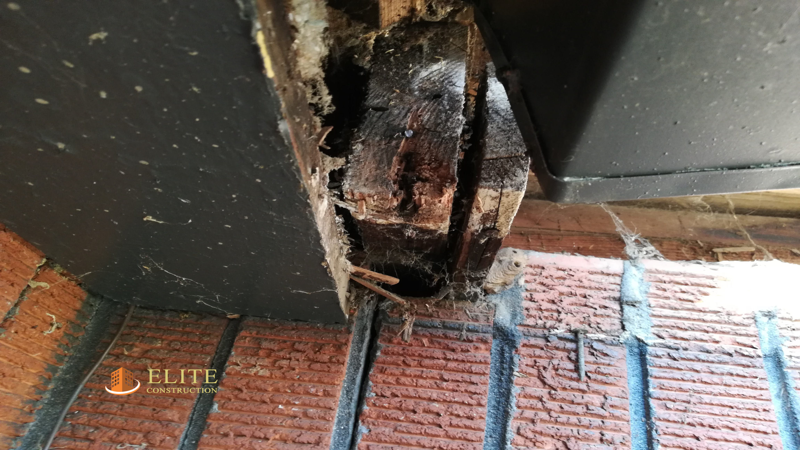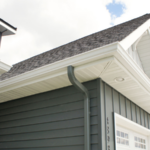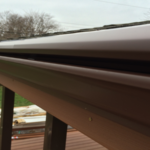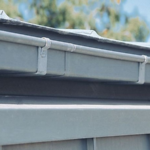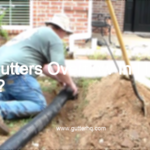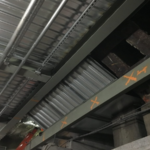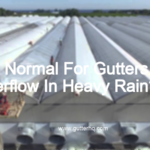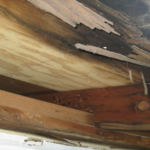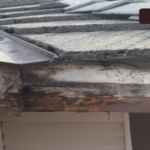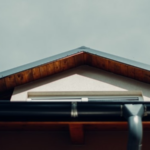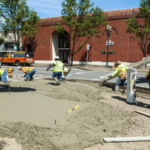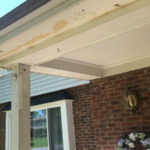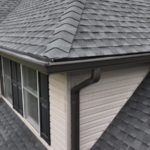Your gutters are supposed to direct water away from your home and foundation to protect them from water damage, but if they’re not maintained properly, they can actually do more harm than good. Clogged gutters full of leaves and debris can overflow during heavy rain, dumping water right next to your foundation and causing serious flooding and water damage.
How do you keep gutters from overflowing in heavy rain?
There are a few things you can do to keep your gutters from overflowing in heavy rain. First, make sure that your gutters are clean and free of debris. This will allow water to flow freely through them and prevent any blockages. Secondly, you can install gutter guards or covers to keep leaves and other debris out. Finally, you can make sure that your downspouts are clear and unobstructed so that water can flow freely through them. By taking these steps, you can help to ensure that your gutters will not overflow during heavy rains.
How do I stop my gutters from overflowing?
- Check your gutters for any blockages that may be causing them to overflow. If you find any, remove them and clear the gutters.
- Make sure that your gutters are properly pitched so that water can flow through them easily.
- Install gutter guards or screens to keep leaves and other debris from clogging your gutters.
- Inspect your gutters regularly and clean them out as needed to prevent overflows.
Can heavy rain cause gutters to overflow?
When it comes to your home’s gutters, you might not think that heavy rain could be a problem. After all, they are designed to catch and channel away water, right? Unfortunately, even the best gutters can overflow during a downpour – and when that happens, you could be in for some serious damage.
There are a few different reasons why gutters might overflow during a heavy rain. One of the most common is that they are simply full of debris – leaves, sticks, twigs, and even gravel can build up over time, and when they do, they can prevent water from flowing properly through the gutters. As a result, the gutters can become overloaded and start to overflow.
Another possibility is that the gutters are installed incorrectly. If they are too low, or if they don’t slope properly, they won’t be able to channel water away from your home effectively. This can also cause them to overflow.
Finally, gutters can overflow if there is simply too much rain falling too quickly. Even if your gutters are clean and installed correctly, they might not be able to handle a downpour.
Is it normal for gutters to overflow?
There are a few reasons that your gutters might be overflowing. It could be that your gutters are full of debris and need to be cleaned out. It could also be that there is a blockage somewhere in your gutters that is preventing the water from flowing through properly. If you suspect that there is a blockage, you can try using a plumber’s snake to clear it out. If your gutters are still overflowing after you have cleaned them out and checked for blockages, it could be that they are too small for the amount of rainwater that they are being asked to handle. In this case, you might need to have larger gutters installed.
Why is water pouring out of my gutter?
It’s possible that your gutter is clogged with debris, causing water to back up and spill over the edge. Alternatively, the downspout might be blocked, preventing water from draining properly. If you live in an area with heavy rains, it’s also possible that the rain is simply too much for your gutter to handle, and some overflow is inevitable. In any case, it’s best to clean out your gutters and check for blockages regularly to prevent this problem from occurring.
Do gutter guards work in heavy rain?
Gutter guards work by protecting your gutters from leaves, twigs, and other debris. By doing so, they allow water to flow freely through your gutters and downspouts, preventing clogs and backups. While gutter guards can’t completely eliminate the need for gutter cleaning, they can significantly reduce the frequency with which you need to clean your gutters.
In heavy rain, gutter guards will keep your gutters from clogging by allowing water to flow freely through them. However, they will not completely eliminate the need for gutter cleaning. Heavy rains can still wash debris into your gutters, and you may need to clean them out periodically to prevent clogs.
How do we ensure that rainwater collected in gutters does not overflow back into the house?
- By making sure that your gutters are clean and free of debris, you can help to ensure that rainwater will flow freely through them and not cause any overflow back into your home.
- Another way to help prevent overflow is by making sure that your gutters are properly pitched so that the water will flow away from your home.
- If you live in an area with heavy rains, you may also want to consider installing a gutter guard or leaf guard to help keep your gutters clear and reduce the risk of overflow.
Last Word
There are a few reasons why your gutters might overflow in heavy rain. One reason could be that your gutters are clogged with debris. Another reason could be that your gutters are too small for the amount of rain that is falling. Whatever the reason, it is important to get your gutters fixed so that they don’t continue to overflow and cause damage to your home.
